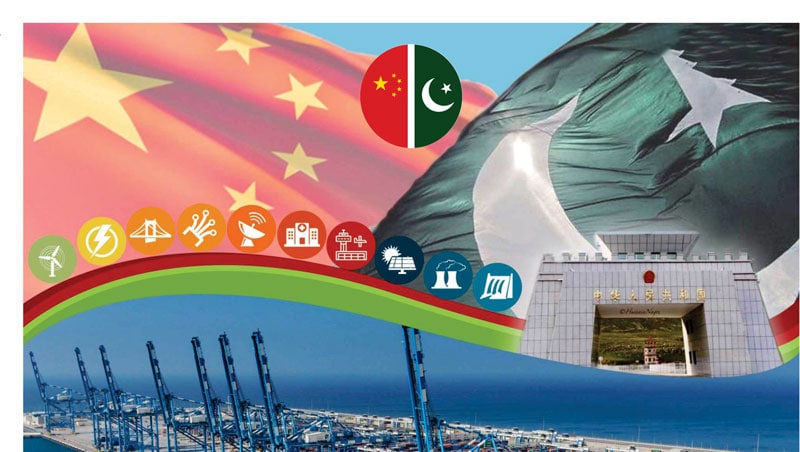The fall season has now cast a shadow over China and its landscape, while widespread speculations and conspiracy theories threaten to undermine the progress, scope and utility of CPEC Phase-2. These factors risk eroding the long-standing friendship, altering the iron-clad brotherhood and unsettling the diplomatic and political comfort between the two countries.
Chinese President Xi Jinping has emphasized that security is the foundation of development, and development ensures security. With joint efforts, both nations can work to eliminate terrorist threats in the region, ensuring the safety of Chinese nationals working in the country and removing barriers to mutual security.
Chinese Ambassador to Pakistan Jiang Zaidong’s recent statement reflects growing frustration over security issues impacting CPEC. Citing two deadly terror attacks within six months as unacceptable, Zaidong called on Pakistan’s leadership to intensify actions against anti-China groups like TTP, BLA, MB, and ISKP. He proposed a joint security mechanism to address these concerns, as current efforts lack sufficient trust. Pakistan’s government and intelligence agencies must respond with a decisive crackdown on these groups to uphold China’s security priorities, which remain crucial to the success of CPEC.
Unfortunately, diplomatic naïveté has become a laughing stock in the world mass media which badly squeezed the existing ease and smoothness of mutual political consultations which immediately delayed the scheduled visit of the President Asif Ali Zardari to Shanghai and China.
Safety and security has been the pressing demands of Beijing which has not yet been fulfilled despite all tall claims producing now shocking results. China has been using high-level diplomatic means to convey its serious security concerns to the Pakistani leadership, pushing it to announce a comprehensive campaign against terrorism and extremism under Operation Azm-i-Istehkam. Regrettably, these assurances from Pakistan have done little to ease Beijing’s concerns.
According to reliable diplomatic sources, during Chinese Premier Li Qiang’s recent visit to Islamabad a proposal for a joint security mechanism was discussed as a critical condition for securing major infrastructure and energy deals with Pakistan. The signing of numerous agreements has now provided Pakistan’s law enforcement, tasked with protecting Chinese nationals, with six bulletproof vehicles and approximately 20 firefighting trucks.
It seems that the Government of Pakistan and its stakeholders have not been in favour of a formal Chinese security presence within its borders, having itself developed extensive infrastructure to secure CPEC and protect Chinese nationals. Thus no boots on the ground which has now become somehow a sign of disagreement between two countries.
The defence forces of Pakistan formed the Special Security Division in 2016 comprising 34 and 44 Light Infantry Divisions, with 15,000 troops each. The SSD is also supported by 32,000 security personnel from the Frontier Corps, police and Levies. There is reportedly a dedicated intelligence network to detect and eliminate terrorism-related threats. Despite this healthy security infrastructure, attacks on Chinese nationals have existed and exhausted the patience of the Chinese side.
It is pertinent to mention that after the deadly Dasu attack on a bus carrying Chinese workers, the government has substantially enhanced its commitment to the safety of Chinese nationals by further tightening standard operating procedures and adding extra security layers. Additionally, duties of provincial police forces have been extended down to the district level, with district administrations and provincial governments required to review security plans for Chinese nationals monthly, alter travel routes and implement other important precautionary measures. According to the SOPs, Chinese nationals must travel in B-6-level armoured vehicles to minimize risks.
However, the October 2024 attack on Chinese nationals in Karachi highlighted susceptibilities within security institutions and exposed lapses in SOP enforcement gearing a possibility that Chinese private security companies may become involved in providing inner-circle security for Chinese workers, a step that would respect Pakistan’s sovereignty. It would be an initial step, and if security threats were not prevented, the cooperation would go deeper.
Obviously, there are some serious issues of capacity building in the operations of the law enforcement agencies and their access to effective surveillance equipment, which could make a significant difference. It is imminent that now it is increasingly difficult to avoid this pledge. Nevertheless, the policy makers of Pakistan can, however, aim to confine the joint security mechanism to specific areas while ensuring that the SSD and other law enforcement agencies maintain maximum compliance with the SOPs they have developed to protect foreign nationals.
In summary, joint efforts should be initiated for confidence building measures removing the siege of dark shadows between two countries. Diplomatic sanity should prevail through close political counseling and administrative liaison. The policy makers of Pakistan should realize that safety and security of the Chinese nationals and protection of the CPEC projects is the real custodian and guarantors of socio-economic prosperity, seeking more and more inflows of FDIs and trans-regional connectivity.
Islamabad and Beijing may consider jointly forming a drone surveillance unit especially in the coastal and border areas of Balochistan, KP and Southern Punjab. The formation of an Artificial Intelligence Unit for policing in the urban areas may be an innovative idea providing ample cushions for protecting concepts of national sovereignty and territorial integrity.
Rigorous training drills of law enforcement agencies, counter-terrorism units and humanoid warriors would be an ideal combination to eradicate terrorism from the country and safeguard the best interests of Pak-Sino ties in the days to come.
Last but not the least, a model of wall-security living may be another option in Gwadar, Balochistan, Karachi, Lahore and many other metropolitan cities of the country for the Chinese nationals. Supply of electrical counter espionage gadgetries and sharing of information in real time would be value addition in the fight against terrorism.
CPEC Phase-2 guarantees Pakistan’s qualitative industrialization, modernization and digitalization which should be protected by all means. Policy craziness is creeping gradually but surely marginalizing our economic survival and progress thus an immediate and integrated action plan and road map to eliminate terrorism from the country is the need of hour.










